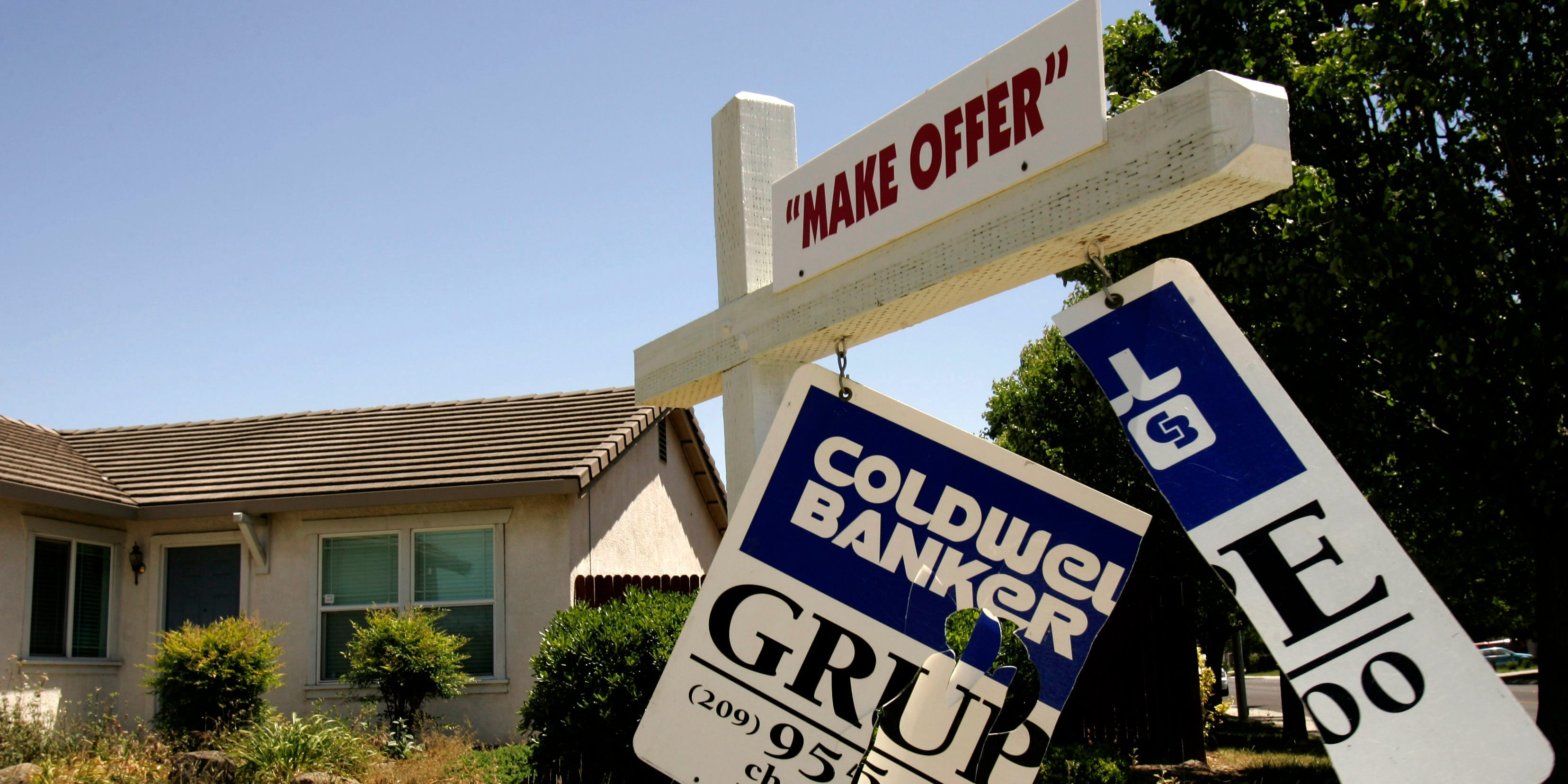The Fed may have broken the US housing market, according to top economist Mohamed El-Erian. That’s because interest rate hikes have helped drive up mortgage rates, weighing on both supply and demand. Loading Something is loading.
Thanks for signing up!
Access your favorite topics in a personalized feed while you’re on the go.
The US housing market may be broken, and the Federal Reserve’s aggressive interest rate hiking cycle over the past year could be to blame, according to top economist Mohamed El-Erian.
“There’s a real issue as to whether we’ve broken the housing market,” the Allianz chief economic advisor said in an interview with CNBC on Monday, pointing to high mortgage rates weighing on the market. The average rate on the 30-year fixed mortgage notched a fresh 23-year-high last week, clocking in at 7.48%, according to Mortgage News Daily.
High rates have frozen the housing market over the past year by crimping both supply and demand. Many prospective buyers are priced out of the market due to higher costs of borrowing. Meanwhile, existing homeowners are discouraged from putting their properties up for sale, as many are looking to cling onto the low interest rates at which they financed their homes years ago. This has kept prices elevated even as demand slips.
The result is a housing market in a state of limbo, with affordability unlikely to improve unless mortgage rates dial back more significantly, experts say.
“When you go from record-low mortgage rates to levels that we haven’t seen for almost 20 years, you’ve destroyed both demand and supply. And that’s the irony, is that supply has come down and demand has come down as well. That is the way you destroy the housing market,” El Erian said. “We’ve got to be really careful because the housing market is central to the economy.”
Mortgage rates have been pushed higher by the Fed’s aggressive interest rate hikes over the past year, with central bankers raising rates 525 basis-points to tame inflation in the economy. Short-term rates are now the highest they’ve been since 2001, which economists have warned could push the economy into a recession.
El-Erian, for his part, has been a loud critic of the Fed’s monetary tightening over the past year. Previously, he said the US faced an “uncomfortably high” probability of a downturn, though the central bank couldn’t afford to cut interest rates prematurely. That could risk inflation expectations spiraling out of control, slamming the economy with a far more serious stagflation problem.
Prices accelerated 3.2% in July, down significantly from the peak of 9.1% hit last summer.
Still, El-Erian warned that inflation could rebound over the short-term, thanks to persistent services inflation and wage inflation. That could result in the Fed’s inflation target quietly drifting to 3% as central banks are forced to tolerate higher-than-ideal prices in the economy, he added.
